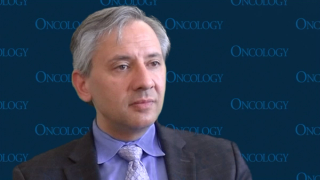
Gastrointestinal Cancer
Latest News
Latest Videos

CME Content
More News
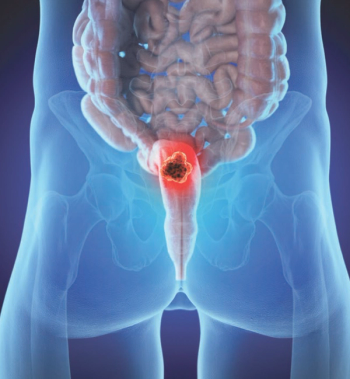
Short-course radiotherapy combined with sintilimab plus oxaliplatin-capecitabine yielded a pCR rate of 59.2% vs 32.7% with the control arm in locally advanced rectal cancer.
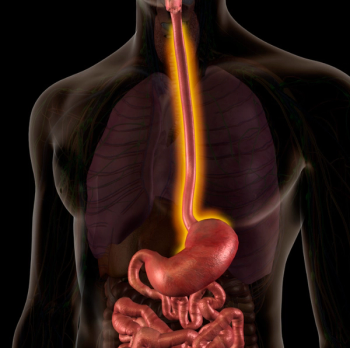
Patients with nonmetastatic esophageal cancer who received FLOT chemotherapy achieved a 3-year OS rate of 61.1% in an analysis of the phase 3 ESOPEC trial.
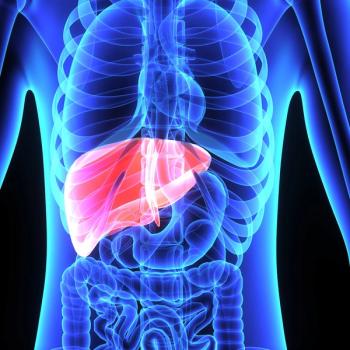
Transarterial chemoembolization plus sorafenib did not significantly improve overall survival in advanced hepatocellular carcinoma vs sorafenib alone.

Phase 1b data show antitumor activity with the givastomig combination across a wide range of CLDN18.2 expression.

Data from the phase 3 BEACON CRC trial support the approval of encorafenib plus cetuximab for this colorectal cancer population in China.
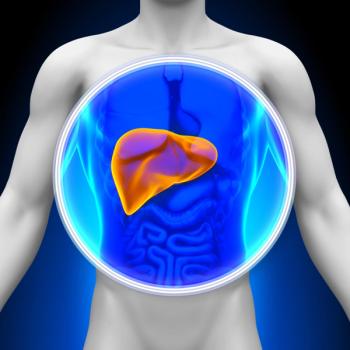
Data from the TALENTACE trial support TACE plus atezolizumab/bevacizumab as an effective option in those with unresectable hepatocellular carcinoma.

Quemliclustat plus gemcitabine and nab-paclitaxel chemotherapy outperformed median OS benchmarks in patients with metastatic PDAC.
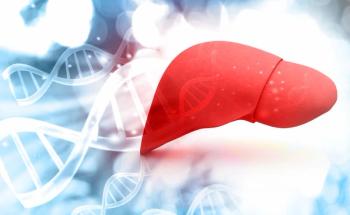
Data from the phase 3b ProvIDHe trial show "reassuringly good" PFS and OS outcomes with ivosidenib in a real-world cohort.

The FDA has waived the need for a botensilimab monotherapy arm in the phase 3 BATTMAN trial evaluating the combination in MSS metastatic colorectal cancer.

Subgroup data from RATIONALE-306 support the frontline use of tislelizumab plus chemotherapy in locally advanced esophageal squamous cell carcinoma.
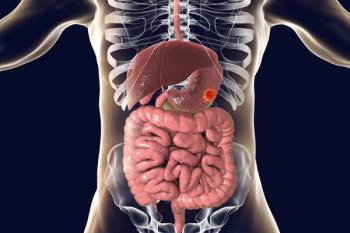
Results from the phase 1a/b trial evaluating ADRX-0405 in various solid tumors, including gastric cancer, are expected to come in late 2025.

Subgroup data from BREAKWATER support cetuximab/encorafenib plus mFOLFOX6 as a new standard of care in BRAF V600E-mutated metastatic colorectal cancer.

The liposomal formulation of gemcitabine may enhance antitumor activity by increasing plasma half-life and improving targeted delivery to tumors.

HAIC with oxaliplatin and raltitrexed produced a higher response rate vs other systemic therapy agents in patients with advanced hepatocellular carcinoma.

SIR-Sphere Y-90 resin microspheres are the only approved radioembolization treatments in the US for both HCC and mCRC.

The CHALLENGE trial in CRC studied structured exercise and demonstrated a DFS benefit comparable to or exceeding oxaliplatin chemotherapy.

Confirmatory data may support zanidatamab as an advancement in the treatment of HER2-positive advanced gastroesophageal adenocarcinoma.
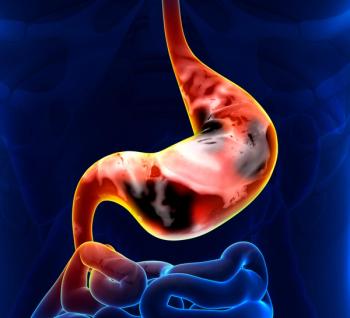
Investigators will present detailed results from the phase 3 FORTITUDE-101 trial at a future medical meeting.

Data from the HERIZON-BTC-01 trial evaluating zanidatamab in previously treated, unresectable HER2-positive biliary tract cancer support the decision.

Those being treated for peritoneal carcinomatosis may not have to experience the complication rates or prolonged recovery associated with surgical options.

For patients with peritoneal carcinomatosis, integrating PIPAC into a treatment regimen does not interrupt their systemic therapy.

Nicholas J. Hornstein, MD, PhD, highlighted results from the phase 3 ATOMIC and CHALLENGE trials in CRC presented at the 2025 ASCO Annual Meeting.

Benjamin Golas, MD, discusses how the use of PIPAC may work in conjunction with systemic chemotherapy for those with peritoneal carcinomatosis.

According to Benjamin J. Golas, MD, PIPAC could be used as a bridging therapy before surgical debulking or between subsequent large surgical operations.

Data from part B of the DeFianCe study demonstrate a positive overall response rate trend with sirexatamab plus bevacizumab and chemotherapy.








